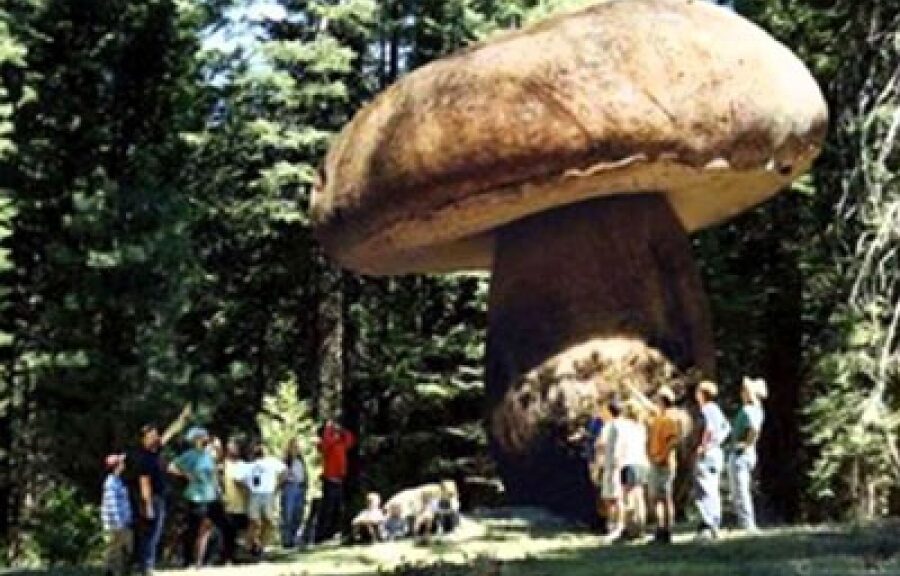Remembering the giant mushrooms that once ruled the earth
When earth plants were relatively new kids and “the largest trees only a few meters high” on the evolutionary block from around 420 to 350 million years ago, giant spires of life poked from the Earth.
“The ancient organism boasted trunks up to 24 feet (8 meters) high and as wide as three feet (one meter),” said National Geographic in 2007. With the help of a fossil dug up in Saudi Arabia scientists finally figured out what the giant creature was: a fungus. (We think.)
The towering fungus spires would have stood out against a landscape scarce of such giants, said New Scientist in 2007.
“A 6-meter fungus would be odd enough in the modern world, but at least we are used to trees quite a bit bigger,” says Boyce.
“Plants at that time were a few feet tall, invertebrate animals were small, and there were no terrestrial vertebrates. This fossil would have been all the more striking in such a diminutive landscape.”
Fossils of the organisms, known as Prototaxites, had peppered the paleontological findings of the past century and a half, ever since they were first discovered by a Canadian in 1859.
But despite the fossil records, no one could figure out what the heck these giant spires were. The University of Chicago:

For the next 130 years, debate raged. Some scientists called Prototaxites a lichen, others a fungus, and still others clung to the notion that it was some kind of tree.
“The problem is that when you look up close at the anatomy, it’s evocative of a lot of different things, but it’s diagnostic of nothing,” says Boyce, an associate professor in geophysical sciences and the Committee on Evolutionary Biology. “And it’s so damn big that when whenever someone says its something, everyone else’s hackles get up: ‘How could you have a lichen 20 feet tall?’”
That all changed in 2007 when a study came out that concluded the spires were a fungus, like a gigantic early mushroom.
But not everyone was sold on the idea that Prototaxites was an early fungus. No one’s questioning the spires’ existence—people just have trouble trying to imagine that such a huge structure could be a fungus.
Researchers trying to refute the fungus idea thought that Prototaxites spires were gigantic mats of liverworts that had somehow rolled up. But in a follow-up study, the scientists who had proposed the fungus idea doubled down on their claim.
So science is messy, and despite more than a century of digging, we still don’t really know, for sure, what these huge spires that dominated the ancient Earth really were.
But even though the spire-like mushrooms of yore—or whatever they were—are long gone, don’t feel too bad for fungus kind. The largest organism on Earth, says ABC, is still a huge fungal mat, a single organism spread over 2,200 acres of forest in eastern Oregon.
